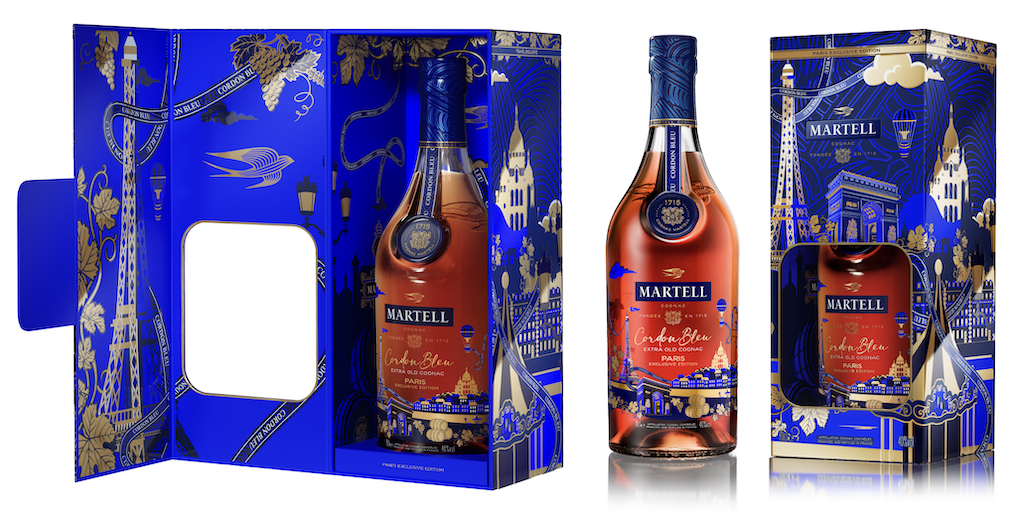SOUTH KOREA. Lotte Duty Free Kap Lee today issued a stirring New Year’s address to his company that combined a sombre assessment of the COVID-related travel retail industry crisis with a determination to overcome the profound challenges through embracing change.
“2021 was a year that plunged the world into recession as COVID-19 continued into a second year,” he wrote. “Lotte Duty Free is also experiencing an unprecedented crisis due to the prolonged pandemic.”
“You must never confuse faith that you will prevail in the end – which you can never afford to lose – with the discipline to confront the most brutal facts of your current reality, whatever they might be.” – The Stockdale Paradox
Lee thanked Lotte Duty Free team members for their efforts during a highly demanding year. Even amid such challenging times and a fast-changing duty free environment, the company had managed to evolve its business model, he noted.

Innovations include the commencement of so-called ‘flights to nowhere’ replete with duty free service; the expansion of Luxemall; the opening of Sogong No.1, the world’s first online luxury store; and the launch of LDF Buy, an online mall for overseas direct shopping.

However, as the recent spread of the omicron variation has shown, the crisis is likely to be prolonged, Lee said.
“With the coronavirus crisis still in progress, how should we face 2022?” he asked, before quoting lessons from the so-called ‘Stockdale Paradox’ – a reference to US Admiral James Stockdale who spent almost eight years in a prisoner of war camp during the Vietnam war. While many of his fellow Americans never made it through the harrowing experience, Stockdale’s mental fortitude helped him survive.
“What made Stockdale different from his other colleagues?” asked Lee. “Those who died prematurely had in common a vague hope that they would be rescued soon. The weight of despair as well as their level of hope eventually engulfed their lives.
“But Stockdale shunned such unfounded hopes. ‘I was able to endure the hardships of torture and prison camp life because I faithfully lived each day, preparing for the future, realistically facing the situation that I would not be released early,’ he said.”
“It is often said that positive thinking is important, but this story also reveals the paradox that vague hope can be poison,” Lee continued. “The COVID-19 pandemic demands a variety of changes, not just social ones caused by the crisis but fundamental ones throughout the industrial system.”

Despite the current difficult circumstances, Lotte Duty Free needs to adopt a shift in perspective to one like Stockdale’s – which accepts the crisis and the change it therefore demands. That will allow the company to make a genuine assessment of its future in a world that will change profoundly over the next five to ten years, Lee continued.
“If we accurately grasp the momentum of big change and take the lead in the process, we will be one step closer to achieving our vision of being ‘The most trusted travel partner’.
Lee said that Lotte Duty Free had a “DNA of success in overcoming the many difficulties and crises of the past”. He commented, “This is the fruit of the blood and sweat of many people who have taken on numerous challenges with the company over the past 40 years, allowing Lotte Duty Free to establish itself as a global duty free retailer. This crisis requires all of us to work together so that we can continue that great legacy.”
“The pandemic crisis – will it conquer or will it be conquered?” Lee asked rhetorically.
“The answer depends on how each of us lives the day. Let’s run towards global customer satisfaction by showing the spirit of the Year of the Black Tiger.”
Have faith but confront reality: The man behind the ‘Stockdale Paradox’On 9 September, 1965 while returning from a mission during the Vietnam war, James B. Stockdale’s A-4 Skyhawk was hit by anti-aircraft fire. Stockdale ejected, breaking a bone in his back and dislocating his knee. He wound up in Hoa Lo Prison, the infamous ‘Hanoi Hilton’ where he spent the next seven years. Despite being kept in solitary confinement for four years, in leg irons for two years, physically tortured more than 15 times, denied medical care and malnourished, Stockdale organized a system of communication and developed a cohesive set of rules governing prisoner behavior. In the spring of 1969 he was told that he was to be taken to be paraded in front of foreign journalists. Stockdale slashed his scalp with a razor and beat himself in the face with a wooden stool knowing that his captors would not display a prisoner who was disfigured. Later, after discovering that some prisoners had died during torture, he slashed his wrists to demonstrate to his captors that he preferred death to submission. This act so convinced the Vietnamese of his determination to die rather than to cooperate that the Communists ceased the torture of American prisoners and gradually improved their treatment of POWs. He was released from prison in 1973. Admiral Stockdale was awarded the Congressional Medal of Honor by President Gerald Ford in 1976. He was one of the most highly decorated officers in the history of the Navy, wearing twenty six personal combat decorations, including two Distinguished Flying Crosses, three Distinguished Service Medals, two Purple Hearts, and four Silver Star medals in addition to the Medal of Honor. [Source: United States Naval Academy] ‘The Stockdale Paradox’ stemmed from Jim Collins’s best-selling business book ‘From Good to Great’, in which the author interviewed James Stockdale. Harvard Business School’s Working Knowledge recalls that meeting: Before meeting with the legendary soldier and statesman, Collins read Stockdale’s memoir and found its grim details hard to bear, despite his knowledge that Stockdale’s later life was happy. Collins wondered, “If it feels depressing for me, how on earth did he survive when he was actually there and did not know the end of the story?” When he posed that question to the Admiral, Stockdale answered: “I never lost faith in the end of the story. I never doubted not only that I would get out, but also that I would prevail in the end and turn the experience into the defining event of my life, which, in retrospect, I would not trade.” Collins asked him about the personal characteristics of prisoners who did not make it out of the camps. “The optimists,” he replied. “Oh, they were the ones who said, ‘We’re going to be out by Christmas.’ And Christmas would come, and Christmas would go. Then they’d say, ‘We’re going to be out by Easter.’ And Easter would come, and Easter would go. And then Thanksgiving, and then it would be Christmas again. And they died of a broken heart. “This is a very important lesson. You must never confuse faith that you will prevail in the end – which you can never afford to lose – with the discipline to confront the most brutal facts of your current reality, whatever they might be.” |













